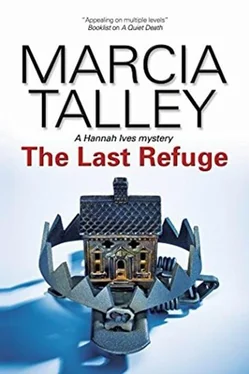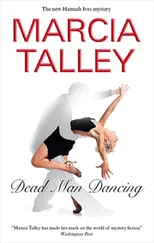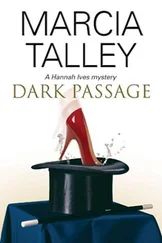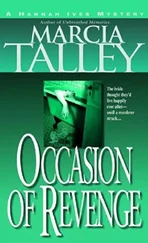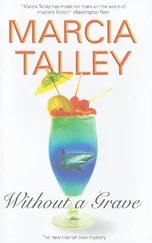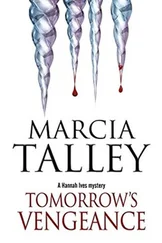
Marcia Talley
The Last Refuge
Book 11 in the Hannah Ives series, 2012
Writing is a solitary business, yet it takes a team to put a novel into the hands of readers. With thanks to my incredible team:
My husband, Barry Talley, who turns down the TV and slips thin food under my office door whenever I’m on deadline.
My editor, Sara Porter, my can-do publicist, Michelle Duff, publisher Edwin Buckhalter and everyone else at Severn House who makes it such an incredibly supportive place for a mystery writer to be.
Historic Annapolis Foundation and the staff of the William Paca House for allowing my imaginary LynxE production team and cast to move in, particularly Alexandra Deutsch, Curator (2004-2008); Glenn Campbell, Historian; and Scotti Preston, Living History/Special Projects Coordinator.
Joseph Gagliardi, M.A., M.D. who practices medicine both in the past (as Doctor A. Dobbs) and in the present as Medical Director of the Detox Center of Central Maryland, in Columbia, Maryland.
Lt Paul Wood, USN, for… well, if I told you, he’d have to kill me.
And once again, my fellow travelers at various stations on the road to publication, the Annapolis Writers Group: Ray Flynt, Lynda Hill, Mary Ellen Hughes, Debbi Mack, Sherriel Mattingley, and Bonnie Settle for tough love.
To Kate Charles and Deborah Crombie who are always there to help out whenever the muse takes a vacation.
And, of course, to Vicky Bijur.
‘Patriotism is the last refuge of a scoundrel.’
Samuel Johnson (1709-1784)
James Boswell, Life of Johnson,
entry for Friday, April 7, 1775
‘As I faced my own mortality, I asked myself: “If not now, when?”’
Hannah Ives
Hollywood legend has it that Lana Turner was discovered while perched on a fountain stool at Schwab’s drugstore. Not true, according to Wikipedia. The sixteen-year-old truant was sneaking a Coca-Cola at Tops Café at the corner of Sunset and McCadden, but it just goes to show that when you think you know what you’re doing, life pitches you a curve.
I’ll never fill out a sweater the way Lana did, Lord knows, but my introduction to show business was similarly mundane: I was cleaning out my fridge. Sink full of soapy water, arms submerged up to the elbows, mold-stained plastic containers bobbing like derelict boats among the suds, Barbra Streisand and I belting out People Who Need People at the top of our lungs, when I thought I heard the telephone ring. Using my elbow, I punched the power/off button on the Sirius radio and listened. When the telephone rang again, I stripped off my rubber gloves and answered it.
‘Hannah? Hannah Ives?’ The voice at the other end of the line sounded familiar, but I couldn’t place it immediately.
‘Yes?’
‘It’s Jud, Mrs Ives. Jud Wilson.’
The last time I’d seen Jud, a young production assistant at Lynx News, we’d been sitting in a studio at network headquarters in Washington, D.C., reviewing Library of Congress security camera footage he’d pulled strings to lay hands on for me. I still owed him. Big.
‘Jud! How the heck are you? Still with Lynx News?’
‘In a manner of speaking,’ the young man told me. ‘After John Chandler went over to CNN, I hung around for a while working for the anchorman who replaced him, but when a job came up at Lynx Entertainment, I jumped at it.’
I’m a sucker for those make-over shows on the House and Garden Network, but LynxE wasn’t one of the channels I made a habit of watching. The network had inflicted such must-sees on the American viewing public as Stranded and Take My Wife, Please! and Carpool Confidential . ‘Don’t tell me you’re responsible for CEO Kids ,’ I said, naming one of LynxE’s most popular summer shows where child protégées were installed in senior positions in some of America’s largest companies, including ExxonMobil and Bank of America. When one budding genius managed to lose half a million dollars in an hour of trading for Merrill-Lynch, the show’s ratings had shot into the stratosphere.
Jud laughed. ‘Not one of your faves, I take it.’
I snorted.
‘You’re probably wondering why I’m calling, Hannah.’
‘The thought crossed my mind, yes.’
‘The truth is, I’m kind of in a bind, and I’m hoping you can help me out.’
‘You know I will,’ I said, remembering how he’d stuck his neck out for me. Then I added cautiously, ‘If I can. Would you care to elaborate?’
‘It’s too complicated to go into over the phone. Are you free right now?’
I considered the disaster that was my refrigerator – door yawning open, plastic tubs full of the colorful, furry remains of God-knows-what littering the countertop awaiting triage – garbage disposal or trash? – and said, ‘Sure. Where and when?’
‘I’m in Annapolis, so how about now?’
‘As good a time as any. Where are you calling from, Jud?’
‘Look out your window.’
I wandered through the dining room, into the living room that spanned the front of our Prince George Street home and drew the curtain aside. Jud Wilson stood outside, running shoes firmly planted on the uneven brick sidewalk, his cell phone pressed to his ear. He sported the same fashionably layered do with a fringe of bangs as the time I’d last seen him, but had replaced the chinos, white dress shirt and tie that had been his uniform at Lynx News with a black T-shirt tucked and belted into a pair of neatly pressed blue jeans. When Jud saw me peering out, he waggled his fingers.
‘Silly boy,’ I chided over the phone. ‘Why didn’t you simply ring the doorbell?’
On the other side of the window, Jud shrugged.
‘What the heck are you doing out there?’
‘I was in the neighborhood,’ Jud said, as if that explained everything. He pointed east down Prince George Street in the direction of the William Paca House, a colonial mansion built in the mid 1760s by Maryland patriot William Henry Paca, a signer of the Declaration of Independence. Fully restored to its 1770s splendor, the house was now a popular tourist attraction. I could see a Lynx News truck parked in front of the house, partially blocking traffic on the narrow, one-way street. A VW Jetta was easing carefully around it, one wheel kissing the opposite curb.
I stifled a gasp. ‘A news truck? Why? What’s happened?’
Jud raised a hand. ‘Don’t worry, no problem. It’s for a show I’m producing.’
In the past several days, I’d noticed moving vans coming and going, workers wearing overalls and white gloves lugging furniture out of the historic home. There’d been much speculation about it in the neighborhood, but I’d reached an over-the-fence consensus with my next-door neighbor, Brad Perry, that renovations must be going on and that the furniture – some of it original to the house – was being removed for safekeeping.
Brad and I were right, but we were also wrong.
‘We’re shooting a TV show at Paca House,’ Jud explained, gesturing at me through the window. ‘It’s called Patriot House, 1774. ’
‘Ah.’ I thought I could predict where this conversation was going. Jud was in cahoots with my daughter, Emily, who’d been his college friend. Somehow he’d learned that we had three empty bedrooms. ‘Let me guess,’ I continued. ‘The hotels are all full and you’re looking for places to put up your staff.’
Читать дальше
